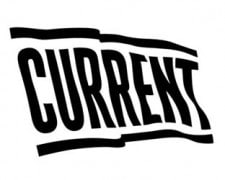 Current TV’s $500 million sale to Al Jazeera has generated a $5M lawsuit from media consultant (TAP, Inc.) John Terenzio, who says co-founder Al Gore originally was opposed to the deal but had a change of heart on selling his network to the royal family of Qatar, says The Hollywood Reporter.
Current TV’s $500 million sale to Al Jazeera has generated a $5M lawsuit from media consultant (TAP, Inc.) John Terenzio, who says co-founder Al Gore originally was opposed to the deal but had a change of heart on selling his network to the royal family of Qatar, says The Hollywood Reporter.
The lawsuit, filed 3/5 in San Francisco Superior Court by Terenzio, says he conceived the idea for the distribution of an American version of Al Jazeera.
Terenzio claims Gore was adamant about not selling his network to the Qataris but changed his mind and then cut out him out of lucrative deal.
Terenzio, who says in the suit he created China Central Television and reprogrammed it for American audiences, alleges that in late 2011, he presented a proposal for Al Jazeera titled “Path to U.S. Distribution” by Richard Nanula, a principal in Colony Capital. The purpose of the presentation was to explore potential financing and JV partners for the project.
Terenzio says that in June, he identified Current TV as a potential acquisition target for Al Jazeera given its vast distribution network and well-publicized financial woes.
At Terenzio’s direction, Nanula is said to have approached Richard Blum, a member of Current’s board of directors (and the husband of U.S. Senator Dianne Feinstein), who was interested because “he and other Current investors were concerned about the prospect of losing their shirts in the financially troubled Current.”
Terenzio says he met Blum in July and presented “a step-by-step approach for making the sale of the liberal media outlet to Al Jazeera palatable to U.S. lawmakers, pro-Israel factions, cable operators and, most importantly, the American public.”
The lawsuit claims that the structure proposed and the strategies developed were the same ones developed by Terenzio for CCTV and that there was a “mutual understanding that Terenzio would be compensated if Current TV utilized his idea to consummate a sale to Al Jazeera.”
The presentation was left with Blum to show other Current investors, according to the lawsuit. Blum is said to have opined that Gore might find a transaction with Al Jazeera “politically unappealing” but that he would present it to the former U.S. vice president.
Terenzio said that without his knowledge or approval, and “notwithstanding Gore’s original objection,” Current was sold to Al Jazeera on 1/2.
The suit says he confirmed that the Current sale was “motivated by Terenzio’s presentation and that the transaction was patterned on the structure proposed to Blum.” Terenzio is suing for breach of implied agreement, unjust enrichment and quantum meruit (“what one has earned”).
Gregg Skall of Womble Carlyle Sandridge & Rice, LLP, tells RBR-TVBR: “Presenting business ideas and programming concepts is always a tricky area. Here is another object lesson in why written agreements are always a good idea, if only to record the fact that an agreement to use your intellectual property is under consideration. Implied oral agreement, unjust enrichment and quantum meruit are always tough cases, but they are possible and these facts, if proven, would not violate general principles of the statute of frauds. This one will be interesting to keep an eye on.”
See the Hollywood Reporter story here.
RBR-TVBR observation: As a media consultant, Terenzio, should have known to “get it in writing.” Going on assumptions and understandings that he would be compensated because he took the time to construct a power point and come up with a plan may not make it in court. The first step should have been at least a non-disclosure agreement with Blum and Nanula. If Terenzio could have at least produced emails or texts in the lawsuit, there’d be a chance here. We didn’t see any evidence of that.





